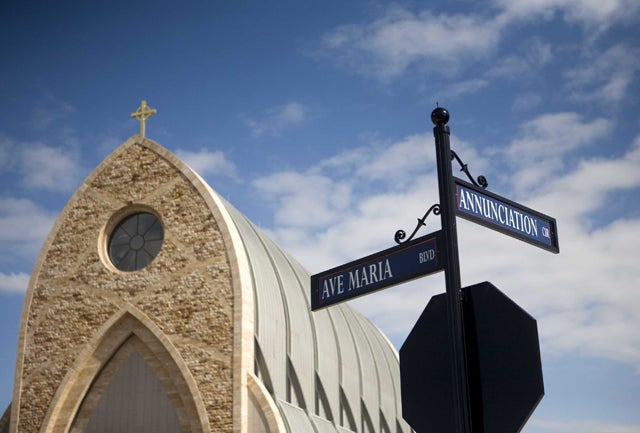Religious freedom is one of the core principles on which America’s system of government is founded, with a historical groundwork that predates the Declaration of Independence and the U.S. Constitution. The First Amendment to the Constitution states that “Congress shall make no law respecting an establishment of religion, or prohibiting the free exercise thereof ….” Religious liberty, often called the “first freedom,” is the cornerstone of American freedoms.
Many have argued that government officials, including some within the Obama Administration, have recently taken actions that disrespect religious liberties and curb the free exercise of religion. Such actions include preventing religious adherents from meeting in public buildings on equal terms with secular groups, inhibiting religious organizations from choosing leaders based on their religious beliefs, and forcing religious institutions to provide health care coverage to their employees that includes abortifacient drugs, contraceptives, and sterilization services.
On the other hand, there are those who contend that these issues are nothing new in the march toward a more pluralistic and tolerant society. As part of Heritage’s Preserve the Constitution series, four distinguished experts on religious liberty with divergent views discussed whether religious institutions and individuals are being treated fairly or like second-class citizens under the U.S. Constitution.
Dr. Richard Land, President of The Ethics and Religious Liberty Commission for the Southern Baptist Convention, stated that, in his view, the threats to the Free Exercise Clause have never been greater. He asserted that the attempt to migrate from protecting the broader concept of freedom of religion to the narrower concept of freedom of worship would provide inadequate respect and protection to this fundamental right. He characterized the Health and Human Services (HHS) mandate, which is part of the Patient Protection and Affordable Care Act, otherwise known as Obamacare, as an attempt at censoring the views of the faithful. The mandate forces religious institutions and affiliated enterprises that provide health insurance to also pay or subsidize that which they find unconscionable, namely contraception and abortion-related drugs, which he believes violates the fundamental principles of religious liberty.
Land referenced the Manhattan Declaration, a proposal by Catholic, Orthodox, and Evangelical Christian leaders that reaffirms support for religious liberty, to highlight his view that far too often when the rights of religious believers come into conflict with others, the rights of the faithful are forced to give way.
The second panelist, William Galston, the Ezra K. Zikha chair in Governance Studies at The Brookings Institution, offered a different perspective regarding the roles of civil law and faith in our society. He contended that “there is no guarantee that the requirements of citizenship and faith will prove fully compatible in a religiously diverse and non-theocratic society, and there is also disagreement about what to do when they come into conflict.” Drawing heavily on the Supreme Court’s opinion in Employment Division v. Smith (1990), which rejected a challenge to federal drug laws as applied to a group of Native Americans who claimed that prohibiting their use of peyote during their religious rituals violated their First Amendment rights, Galston drew a parallel to sacramental wine receiving a religious exemption in the 1920’s during the National Prohibition Act (popularly known as the Volstead Act). This historical example, in his opinion, proves that these debates are not new, but are part of the expected tensions between the laws of the state and the demands of faith which cannot ever be fully resolved, but only managed.
Jay Sekulow, Chief Counsel for the American Center for Law and Justice and an accomplished Supreme Court advocate, emphasized that while our nation still recognizes a great deal of religious liberty, we be must be vigilant in protecting this fundamental freedom. With respect to the current debate about the HHS mandate, Sekulow stated that the reasoning behind the Obama Administration’s decision was fundamentally flawed. He described it as “a political mistake, constitutionally incorrect and bad public policy.” The erosion of this constitutional right—one as fundamental as religious liberty—may serve as a precedent for the erosion of other rights in the future. Were that to occur, Sekulow added, “I shudder to think where it can end up.”
Marci Hamilton, the Paul R. Verkuil Chair in Public Law at the Benjamin N. Cardozo School of Law, stated that, in her view, what is often overlooked is the fact that religious institutions and enterprises discriminate in the name of religious principles against all sorts of groups based on sex, race, ethnicity, sexual orientation, and faith. She sees the opposition to the HHS mandate as a desire by religious groups to exempt themselves from certain requirements as the “backdoor way of getting around discriminating on the basis of religion.” Hamilton spoke about some of the challenges faced by religious institutions, such as the clergy sex abuse cases, in which these institutions have fought against expanding existing statute of limitations, which she finds indefensible.
She also expressed her belief that the HHS mandate is constitutional and that the required payment for health coverage, even when such coverage includes medical practices to which they object, is too attenuated from the individual decisions made by doctors and patients to merit an exemption. In her view, the institutions that are challenging the mandate are trying to impose their religious beliefs on their employees with respect to the health care decisions they make.
The panelists all agreed that the HHS mandate cases would likely reach the Supreme Court in a couple of years. However, if there is a change in Administration following the election, the mandate might be rescinded, which would render these cases moot.
Discussions like this continue to take place all across the United States. It is up to each of us to recognize our responsibility to reinforce our country’s historically strong commitment to protecting religious liberty for all during these challenging times.
